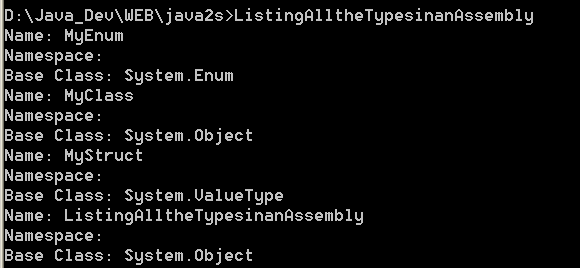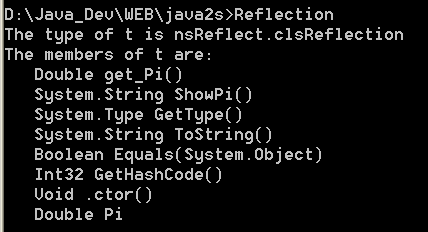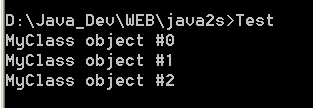Provides a simple reflection based mapper to perform a Data Mapping between two types of objects
//---------------------------------------------------------------------
// This file is part of the Background Motion solution.
//
// Copyright (C) Mindscape (TM). All rights reserved.
// http://www.mindscape.co.nz
//
// THIS CODE AND INFORMATION ARE PROVIDED AS IS WITHOUT WARRANTY OF ANY
// KIND, EITHER EXPRESSED OR IMPLIED, INCLUDING BUT NOT LIMITED TO THE
// IMPLIED WARRANTIES OF MERCHANTABILITY AND/OR FITNESS FOR A
// PARTICULAR PURPOSE.
//---------------------------------------------------------------------
using System;
using System.Collections.Generic;
using System.Reflection;
namespace Mindscape.BackgroundMotion.Core.Utilities
{
/// <summary>
/// Provides a simple reflection based mapper to perform a Data Mapping between two types of objects
/// </summary>
/// <remarks>
/// We are working on the convention that the source object will be property based and the target will be field based
/// This is used between our domain entities and DTO's
/// </remarks>
/// <typeparam name="T"></typeparam>
public class DataMapper<T> where T : new()
{
// TODO: Not thread-safe - using ThreadStatic should be ok here
private static Dictionary<Type, Dictionary<string, PropertyInfo>> _propertyReflectionCache =
new Dictionary<Type, Dictionary<string, PropertyInfo>>();
private static Dictionary<Type, FieldInfo[]> _fieldReflectionCache = new Dictionary<Type, FieldInfo[]>();
/// <summary>
/// Use a reflection based mapping to map between properties and fields
/// </summary>
public static T Map(object source)
{
T target = new T();
FieldInfo[] fields = GetFieldSetInfo(typeof(T));
if (source == null)
{
return target;
}
foreach (FieldInfo field in fields)
{
try
{
PropertyInfo sourceProperty = GetPropertyInfo(source.GetType(), field.Name);
if (sourceProperty == null)
{
continue;
}
field.SetValue(target, sourceProperty.GetValue(source, null));
}
catch (InvalidCastException)
{
}
}
return target;
}
/// <summary>
/// Finds a property in the reflection cache
/// </summary>
private static PropertyInfo GetPropertyInfo(Type t, string name)
{
if (_propertyReflectionCache.ContainsKey(t))
{
if (_propertyReflectionCache[t].ContainsKey(name))
{
return _propertyReflectionCache[t][name];
}
_propertyReflectionCache[t].Add(name, t.GetProperty(name, BindingFlags.Public | BindingFlags.Instance));
return _propertyReflectionCache[t][name];
}
Dictionary<string, PropertyInfo> dictionary = new Dictionary<string, PropertyInfo>();
_propertyReflectionCache.Add(t, dictionary);
dictionary.Add(name, t.GetProperty(name, BindingFlags.Public | BindingFlags.Instance));
return _propertyReflectionCache[t][name];
}
/// <summary>
/// Finds a collection of field information from the reflection cache
/// </summary>
private static FieldInfo[] GetFieldSetInfo(Type t)
{
if (_fieldReflectionCache.ContainsKey(t))
{
return _fieldReflectionCache[t];
}
_fieldReflectionCache.Add(t, t.GetFields(BindingFlags.Public | BindingFlags.Instance));
return _fieldReflectionCache[t];
}
}
}
Related examples in the same category
| 1. | Call GetType() from StringBuilder | | |
| 2. | Call GetType for int data type | | |
| 3. | IsGeneric and IsGenericTypeDefinition | | |
| 4. | demonstrates both the instance and static GetType methods | | |
| 5. | Generic methods, like nongeneric methods, can be invoked dynamically at run time. | | |
| 6. | Type.GetGenericArguments and MethodInfo.GetGenericArguments: | | |
| 7. | Get Generic Type Definition | | |
| 8. | Query properties of a Type | | |
| 9. | Deeper Reflection:Listing All the Types in an Assembly | |  |
| 10. | Illustrates runtime type creation | | |
| 11. | The typeName parameter is a combination of the Assembly and Type names | | |
| 12. | Call static method GetType from Type to get the Type instance | | |
| 13. | Use GetCustomAttributes from Type to get custom attributes | | |
| 14. | Use Type.GetType to check the type of an object | | |
| 15. | Get object Type Name, UnderlyingSystemType, IsClass | | |
| 16. | Type.GetConstructors | | |
| 17. | Use Type.IsClass to check if a type is a class | | |
| 18. | Print Types | | |
| 19. | Determining the base classes and interfaces for a class. | | |
| 20. | Create Object from assembly name and class name | |  |
| 21. | Makes a shallow copy of the object to a different class type (inherits from the original) | | |
| 22. | Makes a shallow copy of the object | | |
| 23. | Get all methods from an object | | |
| 24. | Get Derivation from an object | | |
| 25. | The full name of the Array type | | |
| 26. | Change type | | |
| 27. | Does a given Type have a Default Constructor | | |
| 28. | Is it a Nullable Type | | |
| 29. | Is Value Type Unitialized Value | | |
| 30. | Get Type Unitialized Value | | |
| 31. | Is Object Unitialized Value | | |
| 32. | Is it a SubClass for another class | | |
| 33. | Convert type from initial Value | | |
| 34. | Returns all assemblies and their properties | | |
| 35. | Helper to display the "contents" of the Value Object | | |
| 36. | Get a public field value given its name | | |
| 37. | Deep Comparison two objects if they are alike. | | |
| 38. | Set the specified public field value of an object | | |
| 39. | Determine if a type is cloneable: either a value type or implementing ICloneable. | | |
| 40. | Represents type declarations: class types, interface types, array types, value types, enumeration types, type parameters, generic type definitions, and open or closed constructed generic types. | | |
| 41. | Gets the attributes associated with the Type. | | |
| 42. | Gets the type from which the current Type directly inherits. | | |
| 43. | Gets a value indicating whether the current Type object has type parameters that have not been replaced by specific types. | | |
| 44. | Gets the type that declares the current nested type or generic type parameter. | | |
| 45. | Gets a reference to the default binder. | | |
| 46. | Represents the member filter used on attributes. | | |
| 47. | Returns an array of Type objects representing a filtered list of interfaces implemented or inherited by the current Type. | | |
| 48. | Returns a filtered array of MemberInfo objects of the specified member type. | | |
| 49. | Gets the number of dimensions in an Array. | | |
| 50. | Searches for the members defined for the current Type whose DefaultMemberAttribute is set. | | |
| 51. | Type.GetElementType | | |
| 52. | Returns a Type object that represents a generic type definition from which the current generic type can be constructed. | |  |
| 53. | Searches for the interface with the specified name. | |  |
| 54. | Get types implementing Dictionary | | |
| 55. | Returns all the public properties of the current Type. | | |
| 56. | Type to string | | |
| 57. | Get Full Type String | | |
| 58. | Get class members | | |
| 59. | Reflector | | |
| 60. | Is Type a primitive type | | |
| 61. | Find Method With One Parameter Of Type | | |
| 62. | Determines whether the current type is an implementation of the specified interface. | | |
| 63. | Returns equality with type conversion | | |
| 64. | Groups the utility methods that extracts the meta data of a type. | | |
| 65. | Type loader | | |
| 66. | Get Friendly Type Name | | |
| 67. | Recursively gets all generic type params in any given type definition. | | |
| 68. | Type Manager | | |
| 69. | Given an anonymous type | | |
| 70. | Type Normalizer | | |
| 71. | Run static/Instance method | | |
| 72. | Get Subclass | | |